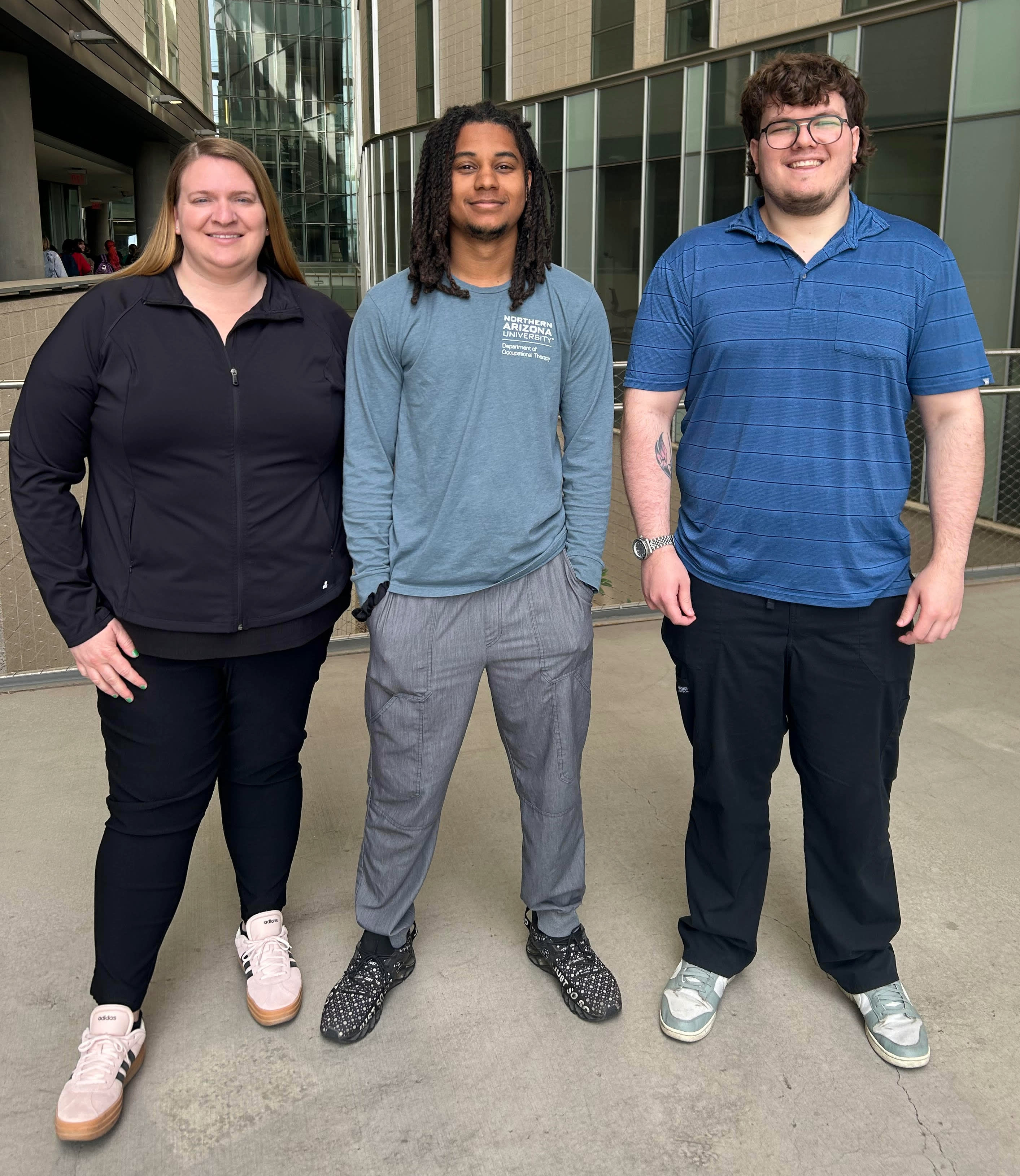
What Is Our Project About?
We are Alison, Barrett, and Jordan, research students here at NAU! Our project will explore the connection of sleep quality and its influence on quality of life in individuals with Complex Regional Pain Syndrome (CRPS). CRPS is a medical condition in which pain responses are disproportionately severe compared to the actual stimulus. For example, a light touch on the arm may feel as intense as an extreme burning sensation for someone with CRPS. In extreme cases, individuals have undergone amputations due to the relentless pain, yet they may continue to experience the same severe pain in the area of the amputation. CRPS significantly affects quality of life, and our research aims to explore the relationship of sleep and quality of life in this population relative to those without CRPS. Our project is nearly ready to launch, and we have the ethics board approval for the study design.
How can you help?
We are seeking funding to obtain essential materials for our project, specifically specialized wearable sensors that track numerous data points during sleep to help assess sleep quality. These wearable sensors also require specific software for data import and analysis, and includes an annual license. Because this is a rare disorder, data collection could span over more than a year which is costly.
 ActiGraph Wearable Sensor - Device to be used in this study
ActiGraph Wearable Sensor - Device to be used in this studyYOUR DONATION will:
- help us achieve our goal of securing these devices and the accompanying software to start working on our project as soon as possible.
- help us as we aim to identify a potential relationship of sleep and quality of life in people with CRPS versus those who do not have this diagnosis.
- allow us to gain new insights that may help improve the quality of life for those affected by this condition.
- provide researchers with insight into this condition and subsequent effects, as well as provide individuals with CRPS answers and support they need to improve their overall health and quality of life.
- allow us to monitor a control group of people without CRPS over a two week period so that we can compare similarities and differences that could potentially guide more targeted rehabilitation in this population.
Without funding, this project will not be possible in this unexplored area of research.
Additionally, once our study is complete, the sleep tracking equipment can be utilized for other ongoing research at NAU, which will be beneficial to the entire research department at our school to have access to such informational monitoring equipment.
THANK YOU!
To all those who donate or spread awareness about this study and CRPS, we THANK YOU for your support as it would not be possible without you! Your contribution will positively impact the lives of those who live with CRPS, helping to find answers for better care and improved well-being. Thank you again!

To learn more about CRPS and our project, keep scrolling!
Interesting Facts About Our Project
Complex Regional Pain Syndrome can develop following a traumatic injury, such as a soft tissue injury or a fracture, but it can also emerge without an apparent cause. Research on CRPS remains limited, particularly regarding its impact on the bidirectional relationship between sleep and pain associated with this diagnosis.
Our study aims to advance sleep research in individuals with CRPS by identifying key factors influencing sleep disturbances. Previous research has examined the connections between pain, sleep and CRS, highlighting their influence on quality of life. However, these initial findings did not clearly identify the specific factors that predict sleep disturbances. By incorporating more objective measures, this study seeks to provide a deeper understanding of how sleep is affected in individuals with CRPS and how these disturbances may further influence overall quality of life.
The Project's Main Purpose
The main goal of our project is to determine if and how the perception of sleep quality is related with quality of life. There has been research done for other patient populations finding an association, but not yet for Complex Regional Pain Syndrome. Sleep is vital for overall health, as this is when the body does most of its repairing and restoration for the following day. Poor sleep quality can lead to cognitive impairment, a weakened immune system, decreased participation in daily activities, and a higher risk of chronic diseases.
How Will The Community Benefit?
Complex Regional Pain Syndrome affects over 200,000 people in the U.S. This project can help the CRPS community in the United States as well as Worldwide by identifying potential links between CRPS and sleep quality, offering valuable insights that could lead to improved care and management strategies. Increased knowledge about CRPS and its effects can also help those without the condition better understand the challenges faced by those who live with it, creating a greater awareness, improved quality of life, and understanding within the community. The findings from this research will serve as a foundation for future research and potentially more effective rehabilitation interventions.
The effects and lack of understanding surrounding CRPS often leaves patients feeling helpless, which can contribute to depression, which can be common in this population. Depression can also impact sleep quality, creating a difficult cycle that no one should have to endure. Our project seeks to take a first step in identifying any connection between CRPS and sleep quality. Through discovering links, we hope to provide answers to the CRPS community and make a meaningful impact on their overall health and quality of life.


